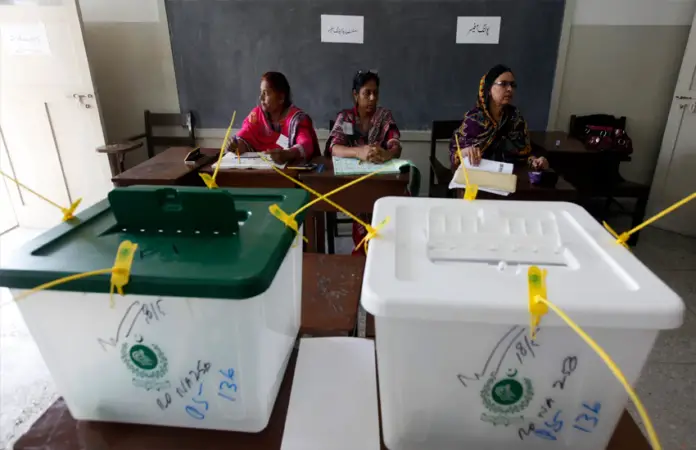The Sindh High Court on Monday took up around 45 petitions, most filed by independent candidates of the Pakistan Tehreek-i-Insaf, against the provisional election results of various national and provincial assembly seats in the metropolis.
The lawyers for the petitioners asked the SHC to declare Form-47 (provisional results) void and sought directive for the Election Commission of Pakistan (ECP) and other respondents to rectify the same in accordance with Form-45 collected by their elections agents from polling stations.
However, respondents’ lawyers questioned the maintainability of such petitions and argued that an alternative remedy was available to them under the Election Act, 2017.
The PTI-backed petitioners argued that that as per Form-45, obtained by their polling agents from presiding officers at all the polling stations of the constituencies in questions, they were leading with big margins, but the results were changed at the offices of the returning officers (ROs) and candidates of the Muttahida Qaumi Movement-Pakistan and PPP were shown winners in Form-47 (provisional results).
When a two-judge bench headed by Chief Justice Aqeel Ahmed Abbasi took up the 45 identical petitions for hearing on Monday, the lawyers for all petitioners have expressed common grievance about provisional results.
Representing the petitioners, Barrister Salahuddin Ahmed, Jibran Nasir, Umar Lakhani, Haider Waheed, Basil Nabi Malik and several other lawyers argued that the results reflected in Form-45 and duly attested by the presiding officers did not tally with the results announced by the ROs through Form-47.
They stated that while preparing provisional consolidated results, the petitioners or their representatives were not given a notice or called at the time of preparing Form-47 and there had been serious manipulation in the impugned results.
The lawyers maintained that no factual controversy was involved in such matters and the SHC had the jurisdiction to redress the grievance of the petitioners.







